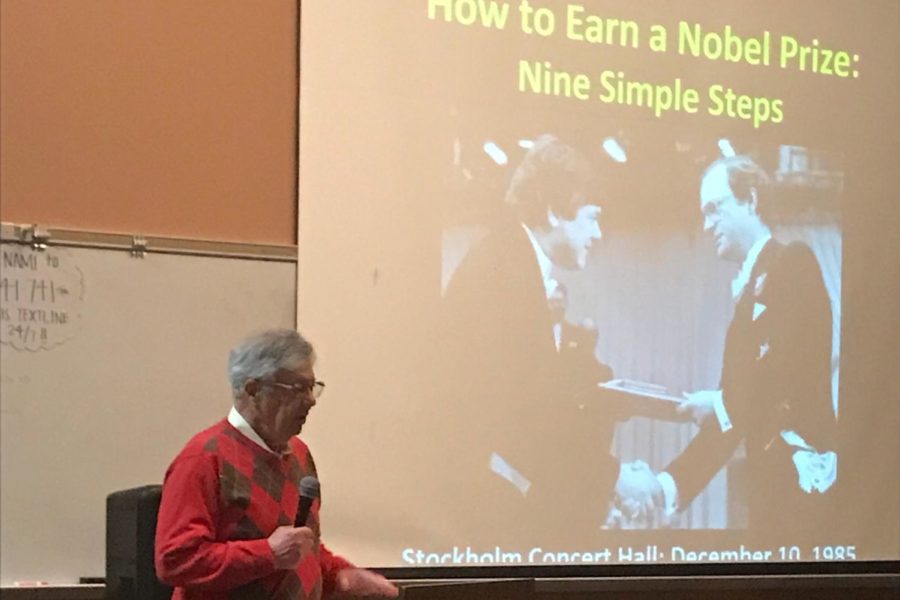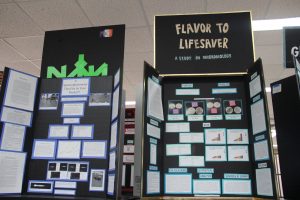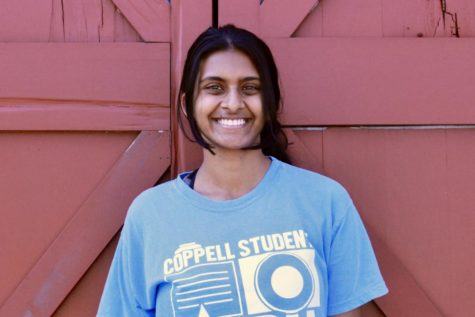On the Spot: Nobel Prize winner inspires science students
On Thursday, Nobel Prize winner Michael Stuart Brown visited CHS to speak about his tips for earning a Nobel Prize. Brown earned his Nobel Prize because of his discoveries regarding the regulation of cholesterol metabolism.
March 2, 2018
On Thursday, Physiology and Medicine Nobel Prize winner Michael Stuart Brown visited Coppell High School to give students interested in the field an overview of what it took to get where he is today.
Brown received his Nobel Prize because of his discoveries regarding the regulation of cholesterol metabolism.
Brown began the presentation in the CHS lecture hall by recounting the day he recieved his Nobel Prize, in Sweden. He was hosted by the campus Science, Technology, Involvement and Research (STIR) Club.
“[When you win a Nobel Prize] you and your family are invited to spend two weeks in Sweden, and you’re treated literally like royal guests,” Brown said. “It’s an incredible event.”
The world knew about Brown’s Nobel Prize before he did. The day the winner was announced, he was awoken by a reporter calling his phone to interview him, and she informed him of his accomplishment, shocked that he was not already aware.
“[The reporter] kept asking me how I felt, and I was so confused. I was like, ‘What are you talking about?’” Brown said. “And [the reporter said], ‘Am I the first one to tell you?”
For the rest of the day, Brown was ambushed with more calls from various journalists, so frequently he did not even have time to call his wife and speak with her about his achievement.
Brown’s advice was split into nine distinct steps, which included “Be curious”, “Train with a Nobel Prize winner (or the equivalent)”, “Find a partner to share the adventure”, and “Find a problem that fascinates you.”
While explaining why it is important to find a fascinating problem, Brown explained the one he found – a little girl who was suffering repeated heart attacks, despite the fact most heart attack victims are older men and women. In order to solve the problem, Brown conducted through research on cholesterol, which eventually led to the discovery that earned him his Nobel Prize.
In the eighth step, Brown explained that although many factors that lead to success are controllable, luck also plays a part.
“If any scientist says ‘I made a discovery and luck played no part in it’, that’s baloney,” Brown said.
Throughout his life, Brown’s wife, Alice, has played a major part in his success. She not only moved across the country to accommodate his work, but also took on the burden of raising their two children. Because of this, the last step and most important step in his presentation was “Pick the right spouse.”
“Make sure [your spouse] is on the same page as you regarding how rewarding this field of work can be,” Brown said. “[There are] students who drop out of their program because their spouse couldn’t understand the reason why they had to work so hard.”













